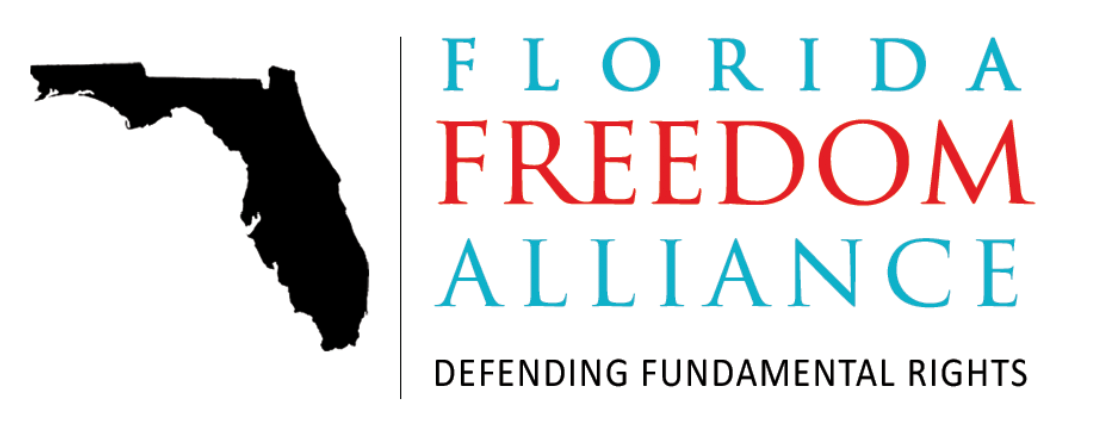In response to news about a Florida teacher’s remarks to students that the government gives us our rights, one of the student’s fathers, Kevin Conkle, summed up his thoughts on the matter. We couldn’t have said it better ourselves, so we figured it best to just share Kevin’s moving words, with his permission of course.
“While it might disturb you that the teacher incorrectly instructed your child / children. It is a great opportunity for the children to learn about our natural rights and why the teacher is incorrect. Rights do not emanate from government; rights pre-date all governments and are possessed by all people simply by the virtue of their own existence.
The rights in the Bill Of Rights are not rights that were granted to the people by government. They are just some of the inalienable rights, held by all people, that the framers felt were in the most danger of being infringed upon by the newly created general government. The right of free speech, freedom of assembly, freedom of religion, freedom to keep and bear arms, freedom of the people to be secure in their persons, houses, papers, and effects against unreasonable searches and seizures… ETC are ALL inalienable rights, NOT rights granted by government. In fact, the very notion that government can give rights is a non-starter.
The very definition of inalienable rights precludes the notion that they can be “granted by government”. Inalienable Rights: Those rights that could not be surrendered by citizens to the sovereign. Such rights were thought to be natural rights, independent of positive law. This is evident in the words of the Declaration of Independence: “We hold these truths to be self-evident, that all men are created equal, that they are endowed by their Creator with certain unalienable Rights, that among these are Life, Liberty and the pursuit of Happiness. — That to secure these rights, Governments are instituted among Men, deriving their just powers from the consent of the governed…”
This philosophy, under which the Declaration of independence was argued for and under which our constitutional republic is based, largely comes from the writings of 16th, 17th and 18th century philosophers who argued that all rights originate in the individual. This philosophy of natural rights can be found in the writings of men such as John Locke in his _Second Treatise of Government_ published in 1689 in which he expounds almost endlessly on the natural rights of man and whose words were adapted and adopted by Jefferson for use in the Declaration of Independence. Also in the writings of Thomas Hobbs, another influential philosopher from whom our founders borrowed from greatly. “the liberty each man hath, to use his own power, as he will himself, for the preservation of his own nature”.
Another writer / philosopher we can look upon is Frédéric Bastiat. A Frenchman who studied America’s government very closely and with great reverence. In his 1850 pamphlet _The Law_ he lays out his argument for the proper role of government and law in a free society. “What Is Law?What, then, is law? It is the collective organization of the individual right to lawful defense. Each of us has a natural right — from God — to defend his person, his liberty, and his property. These are the three basic requirements of life, and the preservation of any one of them is completely dependent upon the preservation of the other two. For what are our faculties but the extension of our individuality? And what is property but an extension of our faculties? If every person has the right to defend even by force — his person, his liberty, and his property, then it follows that a group of men have the right to organize and support a common force to protect these rights constantly. Thus the principle of collective right — its reason for existing, its lawfulness — is based on individual right. And the common force that protects this collective right cannot logically have any other purpose or any other mission than that for which it acts as a substitute. Thus, since an individual cannot lawfully use force against the person, liberty, or property of another individual, then the common force — for the same reason — cannot lawfully be used to destroy the person, liberty, or property of individuals or groups.Such a perversion of force would be, in both cases, contrary to our premise. Force has been given to us to defend our own individual rights. Who will dare to say that force has been given to us to destroy the equal rights of our brothers? Since no individual acting separately can lawfully use force to destroy the rights of others, does it not logically follow that the same principle also applies to the common force that is nothing more than the organized combination of the individual forces? If this is true, then nothing can be more evident than this: The law is the organization of the natural right of lawful defense. It is the substitution of a common force for individual forces. And this common force is to do only what the individual forces have a natural and lawful right to do: to protect persons, liberties, and properties; to maintain the right of each, and to cause justice to reign over us all.”
Even with a rudimentary examination of the founding of our republic and the philosophies upon which it was founded one can clearly see that rights DO NOT come from government, rather they are possessed by every person by virtue of their own existence. It is a shame that many of our educational institutions are teaching a perverted and contrary view on the relationship between the individual’s natural rights and government. I don’t necessarily blame the teacher for getting it wrong, it was more than likely what she was taught and she doesn’t know any better because she never thought to question it or pursue independent studies on the subject. However it is no surprise that government run schools would be teaching children that their rights come from government… that is where we, as parents, need to step in and correct the record. (This is not a statement about [the school], just a general statement about government administered education)”


